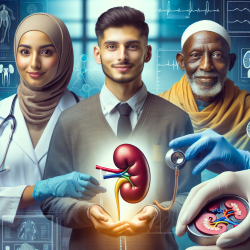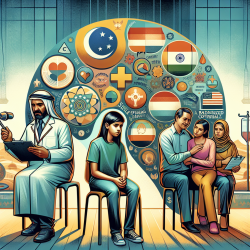Kidney transplantation is a life-saving procedure that offers patients with end-stage renal disease (ESRD) a chance for a better quality of life. However, live kidney transplantation (LKT) remains underutilized, especially among ethnic and racial minorities. The Talking About Live Kidney Donation (TALK) study sheds light on how culturally sensitive interventions can bridge this gap and improve consideration of LKT among African Americans and non-African Americans.
The TALK Study: A Breakthrough in Kidney Transplantation
The TALK study is a pioneering effort that aims to address the disparities in LKT consideration by developing and testing culturally sensitive educational and behavioral interventions. This two-phase study is significant for healthcare practitioners seeking to enhance patient engagement in LKT discussions.
Phase 1: Development of Interventions
The first phase of the TALK study involved creating educational materials tailored to the cultural sensitivities of African American and non-African American patients. These materials include booklets and videos designed to be accessible to individuals with varying levels of health literacy. The content covers crucial aspects of LKT, such as eligibility criteria, donor selection processes, and surgical procedures.
A key component of this phase was the development of a social worker intervention based on Family Problem Solving Theory. This intervention facilitates family discussions around LKT by encouraging mutual discourse and problem-solving strategies.
Phase 2: Testing the Interventions
The second phase involves a randomized controlled trial to evaluate the effectiveness of these interventions. Participants are divided into three groups: those receiving usual care, those receiving educational materials (TALK Program), and those receiving both educational materials and social worker intervention (TALK Plus Program).
The primary outcome measured is the change in participants' consideration of LKT over time. This includes family discussions about LKT, patient-physician discussions, and identification of potential donors.
Practical Strategies for Healthcare Practitioners
The findings from the TALK study offer valuable insights for healthcare practitioners aiming to improve LKT consideration among their patients:
- Culturally Sensitive Communication: Tailor your communication strategies to respect cultural differences and address specific concerns related to LKT.
- Educational Materials: Utilize accessible educational resources that cater to diverse literacy levels to inform patients about LKT.
- Family Engagement: Encourage open family discussions about LKT by facilitating meetings with social workers who can guide problem-solving conversations.
- Early Intervention: Initiate conversations about LKT before patients reach ESRD to allow ample time for informed decision-making.
The Importance of Further Research
The TALK study highlights the need for ongoing research into culturally sensitive interventions in healthcare. By understanding the unique barriers faced by different ethnic groups, practitioners can develop more effective strategies to promote equitable access to life-saving treatments like LKT.
To read the original research paper, please follow this link: Protocol of a Randomized Controlled Trial of Culturally Sensitive Interventions to Improve African Americans' and Non-African Americans' Early, Shared, and Informed Consideration of Live Kidney Transplantation: The talking about Live Kidney Donation (TALK).










